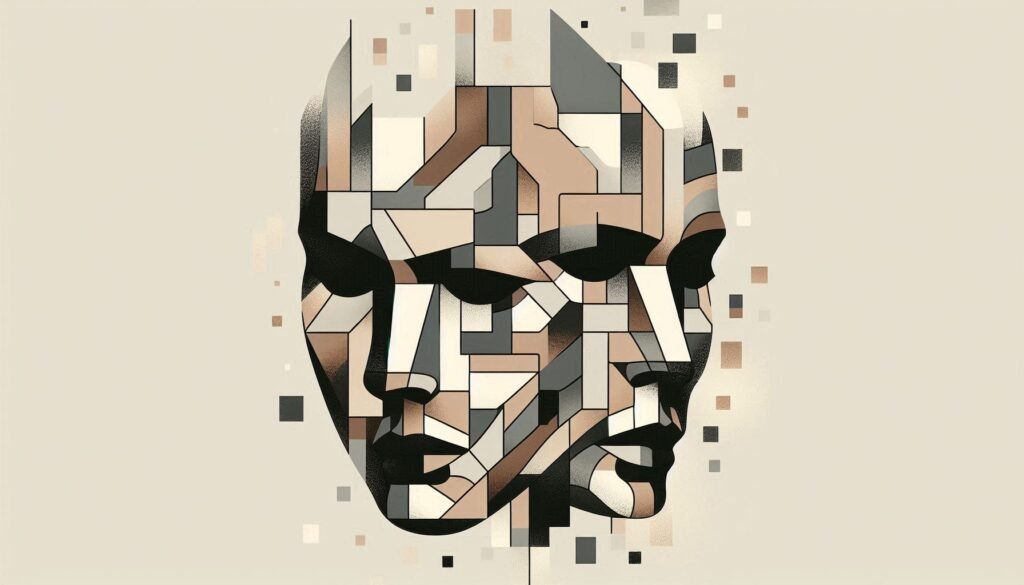Personality disorders can significantly shape how individuals perceive and interact with the world around them. These complex mental health conditions often distort social cognition, leading to misunderstandings and challenges in forming connections. Understanding the relationship between personality disorders and social perception is crucial for both those affected and their loved ones.
As we delve into this topic, we’ll explore various aspects such as common biases, empathy’s role, cultural influences, and therapeutic approaches that can enhance social functioning. By shedding light on these dynamics, we aim to foster greater awareness of how personality disorders impact interpersonal relationships while providing insights that could pave the way for better communication strategies. Join us as we unravel the intricate ties between personality disorders and social perception—an exploration that promises to enlighten minds and hearts alike.

Understanding Social Cognition in Personality Disorders
Social cognition refers to the processes by which individuals interpret, analyze, and respond to social information. In those with personality disorders, these cognitive functions can become distorted. This distortion impacts how they perceive themselves and others.
Individuals may struggle with recognizing social cues or understanding different perspectives. As a result, their interpretations of interpersonal interactions can be skewed. For instance, someone with borderline personality disorder may misinterpret neutral comments as personal attacks.
These challenges stem from underlying emotional dysregulation and maladaptive thought patterns typical in many personality disorders. Consequently, individuals often face obstacles in navigating everyday social situations effectively.
Awareness of these cognitive differences is essential for fostering empathy both within oneself and among peers. Understanding that perception is influenced by psychological factors allows for more compassionate interactions between those affected by personality disorders and the wider community.
Common Biases and Distortions in Social Perception among PDs
Individuals with personality disorders often exhibit biases and distortions that shape their social perception. These cognitive patterns can profoundly influence how they interpret the intentions and emotions of others.
Commonly, individuals may engage in black-and-white thinking. This simplistic view leads them to categorize people as either all good or all bad, disregarding any nuance in behavior or character. Such rigidity can hinder relationships and foster misunderstandings.
Another prevalent distortion is mind reading, where individuals assume they know what others are thinking without evidence. This assumption can create unnecessary conflict and reinforce feelings of isolation.
Additionally, emotional reasoning plays a significant role. When someone feels anxious or threatened, they might perceive others’ actions as hostile, even if there’s no real basis for such beliefs. These biases not only affect personal interactions but also contribute to broader social challenges faced by those with personality disorders.
The Role of Empathy and Theory of Mind in Social Interactions
Empathy and Theory of Mind (ToM) are crucial elements in social interactions, particularly for individuals with personality disorders. Empathy allows us to share and understand the emotions of others. It fosters connection and strengthens relationships.
Theory of Mind refers to the ability to attribute mental states—beliefs, desires, intentions—to ourselves and others. This skill is essential for deciphering complex social cues. Individuals with a well-developed ToM can better navigate social landscapes.
However, those with certain personality disorders often grapple with deficits in empathy or ToM. This can lead to misinterpretations during interactions. For instance, someone may struggle to recognize when another person feels upset or misunderstood.
The impact on daily communication can be profound. Difficulty in understanding others’ perspectives might result in conflict or isolation, further complicating their social lives and relationships over time.
How Different Personality Disorders Affect Social Interpretation
Personality disorders significantly influence how individuals interpret social cues and interactions. For instance, those with borderline personality disorder may experience heightened sensitivity to perceived rejection or abandonment. This can lead to intense emotional reactions when faced with ordinary social situations.
Conversely, someone with narcissistic personality disorder might misinterpret others’ actions as either admiration or criticism, skewing their perception of relationships. They often struggle to see beyond their own needs and desires.
Individuals diagnosed with avoidant personality disorder tend to view social scenarios through a lens of fear and anxiety. Their interpretation is colored by worries about judgment or ridicule from peers.
Each personality disorder shapes the way people process social information. These differences can create barriers in communication and understanding, complicating interactions further within personal and professional realms.
The Impact of PDs on Forming and Maintaining Relationships
Personality disorders (PDs) profoundly influence how individuals form and maintain relationships. Those with PDs may struggle with trust, leading to difficulties in establishing connections. Their perceptions of others can be distorted, resulting in misunderstandings or conflicts.
People with certain personality disorders often exhibit erratic behavior that complicates interactions. For instance, someone with borderline personality disorder might have intense emotional responses, making stable relationships challenging.
Additionally, fear of abandonment is common among those with specific PDs. This fear can drive unhealthy attachment patterns or push people away entirely.
Communication styles also play a crucial role. Misinterpretations of social cues can lead to feelings of rejection or frustration for both parties involved.
As a result, maintaining long-term relationships becomes an uphill battle for many individuals affected by these disorders. The cycle of instability often perpetuates loneliness and isolation in their lives.
Stigma and Self-Stigma: Societal Views on Personality Disorders
Stigma surrounding personality disorders is prevalent in many societies. This stigma often stems from a lack of understanding about these conditions. Misconceptions can lead to negative stereotypes, painting individuals with personality disorders as dangerous or untrustworthy.
Self-stigma also plays a significant role. Individuals may internalize societal views and feel ashamed of their condition. This shame can hinder their willingness to seek help or engage socially.
The impact is profound. It creates barriers not only for recovery but also for forming meaningful relationships. Many people withdraw due to fear of judgment, leading to isolation.
Education and awareness are essential in combating stigma. As society becomes more informed, attitudes toward personality disorders can shift positively, fostering acceptance rather than rejection.
Supportive environments encourage open discussions about mental health, allowing individuals to share experiences without fear of discrimination.
Social Skills Training for Individuals with Personality Disorders
Social skills training offers a structured approach for individuals with personality disorders to enhance their interpersonal abilities. This type of training focuses on teaching practical skills, such as effective communication and emotional regulation.
Participants engage in role-playing scenarios that mimic real-life social interactions. These exercises help them practice responding appropriately to various social cues. By learning how to interpret body language and facial expressions, they become more adept at understanding others’ emotions.
Additionally, the training often includes feedback sessions where participants reflect on their performance. This critical self-assessment promotes awareness of maladaptive behaviors and encourages positive change.
Group settings can also be beneficial, allowing individuals to connect with peers experiencing similar challenges. Through shared experiences, they develop a sense of belonging while improving their social competence in a supportive environment.
The Influence of Attachment Styles on Social Perception in PDs
Attachment styles play a crucial role in shaping social perception among individuals with personality disorders. These styles, formed during early relationships, influence how people interpret interactions and respond to others.
Those with anxious attachment may view neutral comments as critical. This heightened sensitivity can lead to misunderstandings and conflict in social situations. Conversely, individuals with avoidant attachment often struggle to connect emotionally. They might misinterpret expressions of warmth as intrusive or demanding.
These varied perceptions create barriers in communication. An individual’s past experiences shape their expectations and reactions today. For someone with a personality disorder, this means their ability to navigate social dynamics is often compromised by their attachment history.
Understanding these influences can offer pathways for improvement. By recognizing the impact of attachment on social cognition, therapeutic interventions can be tailored effectively.
Cultural Factors Affecting Social Perception in Personality Disorders
Cultural factors play a significant role in shaping social perception, especially for individuals with personality disorders. Different cultures have varied norms and values that influence how emotions and behaviors are interpreted. For instance, some societies may emphasize collectivism, where group harmony is prioritized over individual expression.
In these contexts, behaviors associated with certain personality disorders might be viewed differently than in more individualistic cultures. This can lead to misunderstandings or mislabeling of symptoms.
Moreover, cultural stigma surrounding mental health can impact an individual’s willingness to seek help. In cultures where discussing psychological issues is taboo, those with personality disorders may struggle silently.
Language also shapes perception; the words used to describe feelings or experiences can frame them positively or negatively based on cultural context. Understanding these nuances is crucial for effective support and intervention strategies tailored to diverse populations facing personality disorder challenges.
Neurobiological Basis of Social Cognition in PDs
Neurobiological factors play a significant role in shaping social cognition, particularly for individuals with personality disorders (PDs). Brain regions like the prefrontal cortex and amygdala are crucial in processing social information. These areas help interpret emotions and manage interpersonal interactions.
Studies indicate that people with PDs may experience alterations in these neural pathways. Dysfunctional connectivity between brain regions can lead to skewed interpretations of social cues. This often results in biased perceptions of others’ intentions or feelings.
Moreover, neurotransmitter imbalances can further complicate social understanding. For instance, serotonin dysregulation is frequently observed in those with borderline personality disorder, impacting mood and empathy levels significantly.
Understanding these neurobiological underpinnings sheds light on why individuals with PDs might exhibit challenges in forming relationships or interpreting social contexts accurately. It highlights the need for tailored interventions focusing on both cognitive strategies and emotional regulation techniques to enhance their social functioning.
Improving Social Functioning: Therapeutic Approaches
Improving social functioning in individuals with personality disorders often requires tailored therapeutic approaches. Cognitive Behavioral Therapy (CBT) is one effective method. It helps individuals identify and challenge negative thought patterns that distort their social perceptions.
Dialectical Behavior Therapy (DBT) offers another avenue for improvement. This approach emphasizes emotional regulation and interpersonal effectiveness, providing skills to better navigate relationships and understand others’ perspectives.
Group therapy can also be beneficial. By interacting with peers facing similar challenges, individuals can practice social skills in a supportive environment. Role-playing exercises within these sessions allow participants to experiment with different responses to real-life scenarios.
Mindfulness training complements these therapies by enhancing self-awareness. Individuals learn to observe their thoughts and feelings without judgment, ultimately improving their interactions with others.
Combining various therapeutic techniques fosters growth in social functioning while promoting healthier relationships.
The Role of Feedback and Self-Reflection in Changing Perceptions
Feedback is a powerful tool for individuals with personality disorders. It provides insight into how their behaviors and attitudes impact others. Constructive feedback can help identify patterns that may distort social perceptions.
Self-reflection complements feedback by allowing individuals to evaluate their thoughts and feelings critically. This process encourages awareness of personal biases and assumptions, promoting greater understanding in social interactions.
Engaging in reflective practices can foster empathy. As individuals learn more about themselves, they become better equipped to recognize the emotions of others.
Therapeutic settings often emphasize these elements as essential components of healing and growth. By cultivating an open mindset towards feedback, individuals can gradually reshape their perceptions.
This ongoing journey not only enhances relationships but also contributes positively to overall well-being in various social contexts.
Virtual and Online Interactions: Challenges for Individuals with PDs
Virtual interactions present unique challenges for individuals with personality disorders. The lack of non-verbal cues can create misunderstandings, as social nuances often rely on tone, facial expressions, and body language.
People may misinterpret messages due to this absence of visual feedback. This can lead to increased anxiety and feelings of isolation.
Additionally, the anonymity of online platforms might encourage impulsive behaviors or distortions in self-perception. Individuals may project a false image or struggle with authenticity while trying to engage.
Furthermore, managing relationships in digital spaces can be complicated. Fluctuating emotional responses are heightened when encountering differing opinions or criticism online.
These challenges underline the need for tailored strategies that support effective communication skills within virtual environments for those dealing with personality disorders.
Workplace Dynamics and Social Perception in Personality Disorders
Navigating workplace dynamics can be particularly challenging for individuals with personality disorders. Social perception plays a pivotal role in how these individuals interact with colleagues and superiors. Misinterpretations of social cues, often stemming from their unique perspectives, can lead to misunderstandings or conflict within teams.
For instance, someone with borderline personality disorder may perceive feedback as criticism rather than constructive guidance. This misreading can create tension and affect team morale. Similarly, individuals with avoidant personality disorder might withdraw from collaborative efforts due to fears of judgment or rejection.
The impact extends beyond interpersonal relationships; it influences job performance and career advancement opportunities. Companies that understand the nuances of personality disorders will foster inclusive environments where all employees feel valued.
Training programs focused on empathy and communication skills are essential in promoting better understanding among coworkers. By addressing biases and educating staff about various personality disorders, organizations can enhance workplace cohesion.
Transforming workplace dynamics requires patience and commitment from both management and peers alike. The goal is to create a supportive atmosphere that acknowledges individual differences while fostering collaboration for success.



